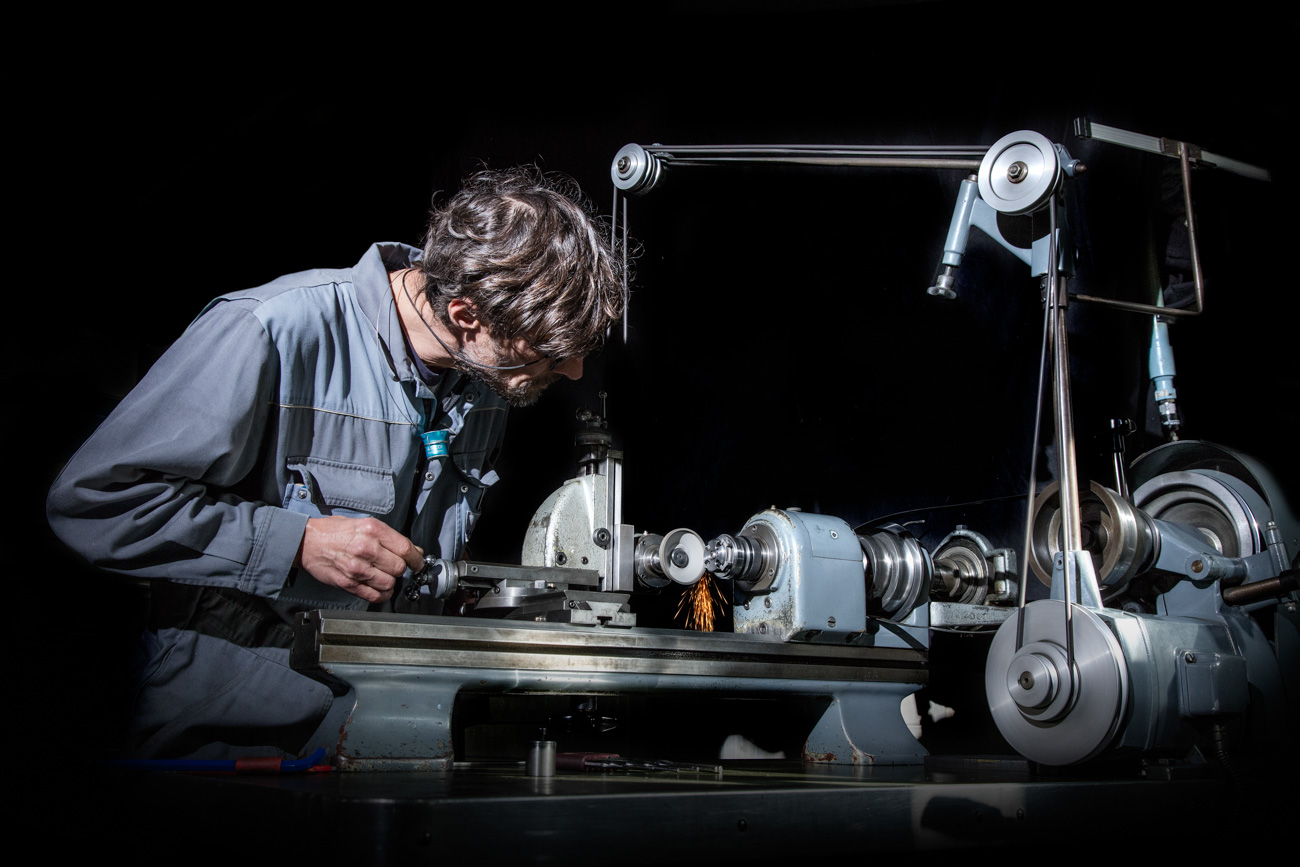
A number of watchmakers based in Switzerland have been experiencing an interesting marketing problem over the last number of years. The solutions to the problem have been remarkably inventive and varied — and yet none has quite yet caught on like the mark they wish to supersede. The issue at its core is simple: How does one luxury watchmaker explain in clear terms to a consumer why its products are differently priced than seemingly similar watches from an another “Swiss Made” brand? For example, why is one Swiss Made watch priced at $2,000, when an ostensibly similar watch costs $20,000? Often, the difference is related to the quality of the components, the cost of labor, the level of decoration, and how much of that watch was actually produced and completed in the country of Switzerland.
The complaint for many watchmakers who operate in Switzerland is that “Swiss Made,” as a legal term, doesn’t necessarily mean the watch is entirely, literally Swiss-made. A watch with most of its parts produced in China and a watch with all of its parts produced in Switzerland can both print the term “Swiss Made” on the dial — if the watch is assembled in Switzerland. The watchmakers who produce all of their work in Switzerland need to charge a lot more money but, in many instances, offer a very different product.

Rebellion toward the Swiss Made term is nothing new, and the politics run deep and are highly complex. In this time of COVID-19, “Swiss Made” has some interesting new challenges that I describe here, and I’ll also offer more discussion on what Swiss Made means. This article, however, isn’t all about Swiss Made, but rather about those who make watches almost entirely (or entirely) in Switzerland. How should these brands refer to their products, and how should they explain the value proposition to consumers?
Let me remind you that the foundational concerns for why people care about distinguishing themselves from mere “Swiss Made” is price, as well as prestige. Entirely Swiss-made watches are necessarily more expensive than most watches labeled as Swiss Made. Then, there is the fact that a lot of consumers want a watch made entirely in Switzerland — these people are receptive to the notion of a “more Swiss Made” watch than the legal requirements of the term now require.
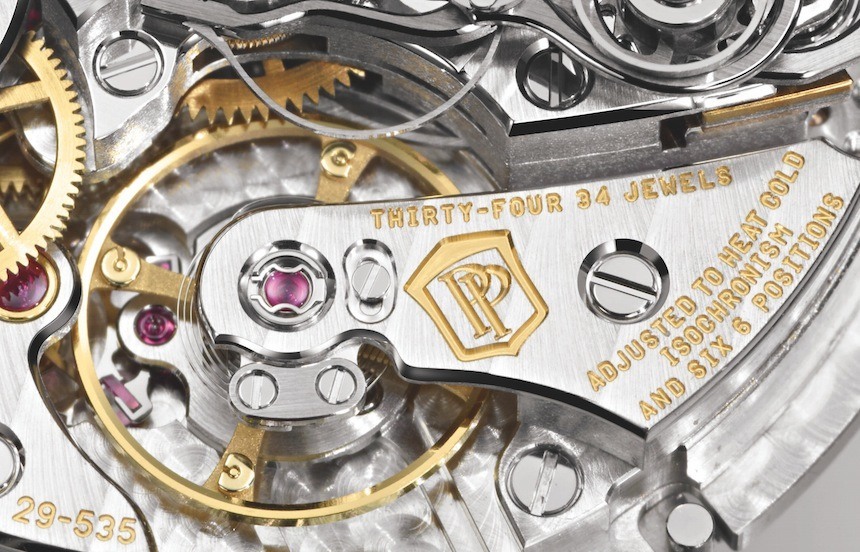
How loosely Swiss can “Swiss Made” be? While many “Swiss Made” watches vastly exceed the minimum government requirements to use the term, enough watches coming out of Switzerland do as little as possible to satisfy the mark. Typically, this is done to allow for a brand to be more affordable (or sometimes merely for higher profit margins).
Note that, in 2017 (all of this is discussed in the article I linked to above), the Swiss government increased the requirements for a watch to be labeled as Swiss Made by increasing the percentage of the essential value of the movement from 50% of cost to 60% of cost. That did help make Swiss Made watches a bit more Swiss, but s Swiss Made watch can still legally have only a few parts in the movement be produced in Switzerland, and most every other part made outside of Switzerland, provided the final watch is “cased” and final-checked” in Switzerland. As you can imagine, that leaves open an incredibly large latitude for Swiss Made watches to be only modestly Swiss.
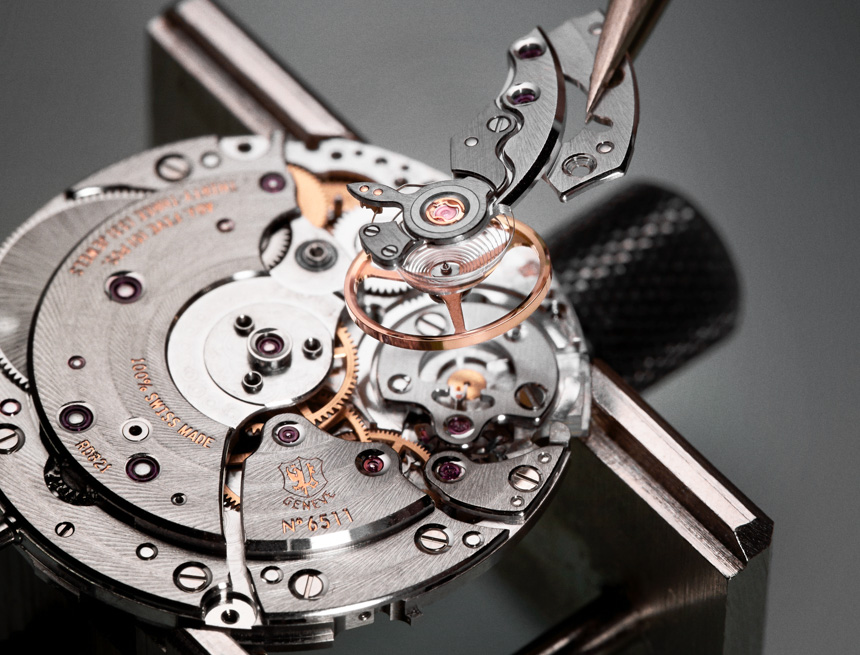
One of the most interesting and popular examples of a company trying to replace terms like Swiss Made is the Patek Philippe Seal. This is a bit odd, since Patek Philippe awards the seal to itself, but the point is that the brand is trying to promote a standard different from Swiss Made, even though Patek Philippe watches are all “Swiss Made.” Another example is the Geneva Seal. That said, these seals and others are not just about where a product is made but also how it is made and how the watch performs. In my opinion, such nuanced standards can be too difficult to monitor or apply across a broad spectrum of watches such as “Swiss Made” can.
A relatively new name and standard called “Swiss Crafted” is the latest in a long line of efforts to promote Swiss Made watches that are, well, more Swiss, if you will. “Swiss Crafted” is a term that its creators hope will be adopted by others, and it comes from the people behind the relatively new brand Mauron Musy.
One problem of Swiss Crafted is that its parameters are still a bit loose. Rather than focus on particular percentages of value or where all the components come from, Swiss Crafted is more an initiative to use all Swiss companies and suppliers from the design to the manufacture and construction of the watches. Yes, some of those companies might have parts subcontracted from outside of Switzerland, but working with a company in Switzerland that clearly manufactures parts in Switzerland is much more “Swiss Crafted” than a watchmaker directly ordering entirely produced cases, dials, hands, and bracelets from another country.
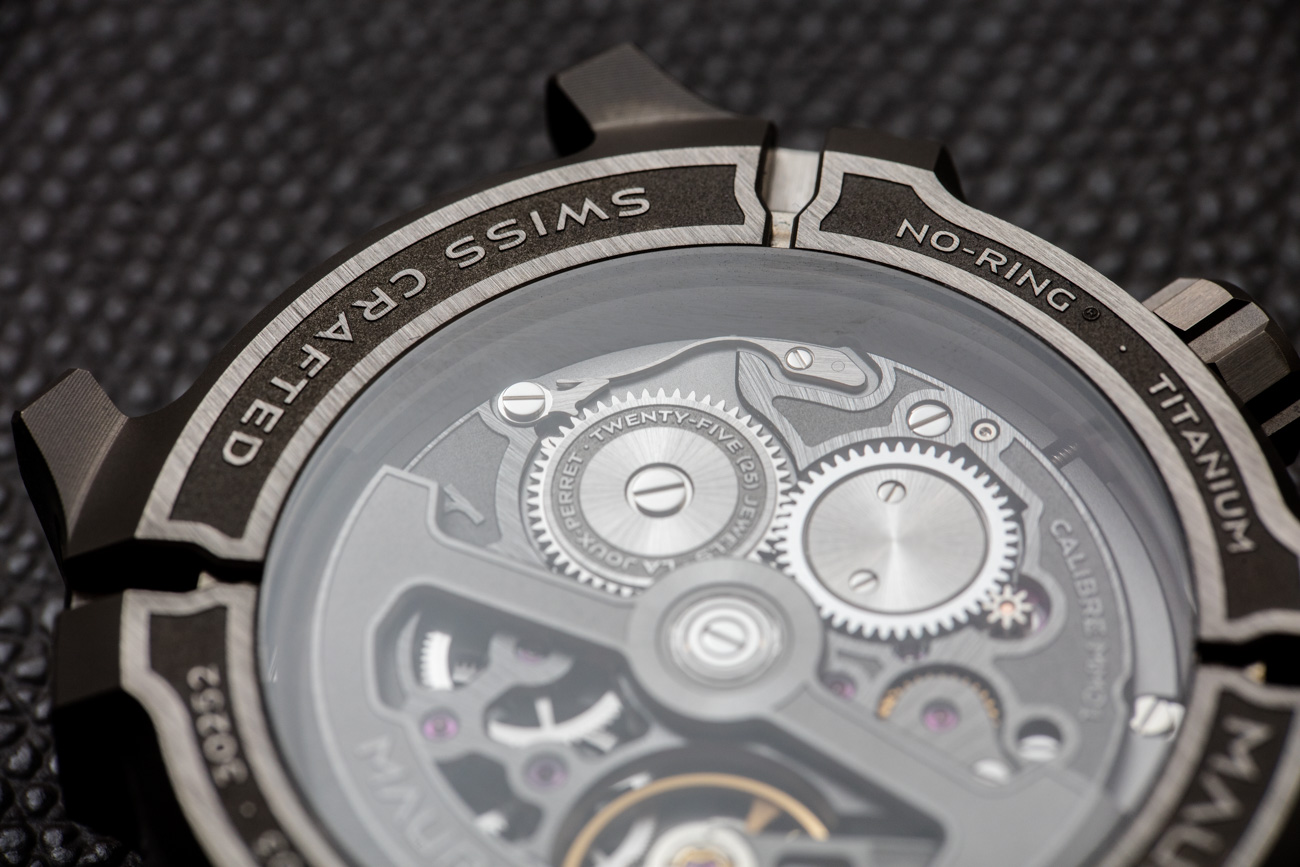
The standard creators have this to say about it: “The ‘Swiss Crafted’ label certifies that 100% of the watch has been developed, manufactured, and crafted in Switzerland.” The standard is designed to create accountability even if it has a few loopholes. To truly have “teeth,” the standard must also have a regulatory body that evaluates watches that want to bear the term and scrutinizes whether or not individual timepieces qualify. Assuming the standard gains traction, for consumers interested in more serious or complete levels of Swiss artisanship, the Swiss Crafted term could offer real value. What the term needs next, in addition to some more participating brands (which apparently is coming), is a bit more articulation of policy and rules so that collectors and consumers can start to understand how Swiss Made and Swiss Crafted are the same and how they are different.
To learn more about Swiss Crafted, I spoke with Mauron Musy co-founder Christophe Musy. Here is what he had to say:
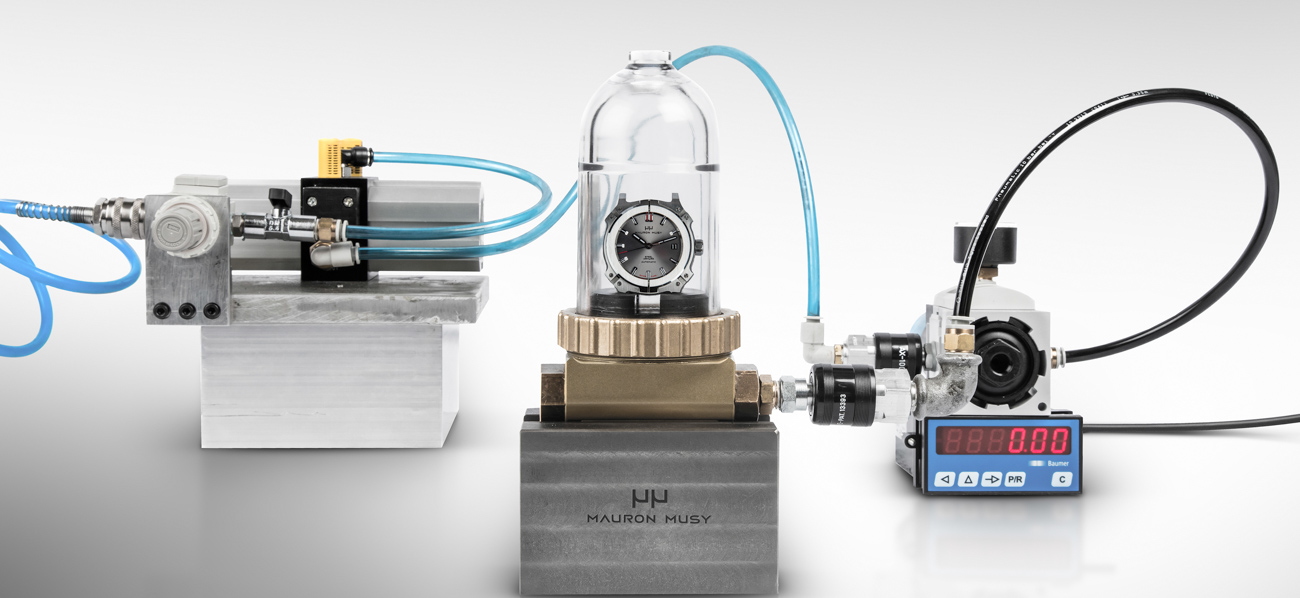 Ariel Adams (AA): “Swiss Crafted” is a defensive term in that you and colleague watch brands came up with it in order to distance yourself from mere “Swiss Made” watches. What prompted you to take up this initiative, and what do you think it will take to educate enough consumers that “Swiss Crafted” and “Swiss Made” can be two very different things?
Ariel Adams (AA): “Swiss Crafted” is a defensive term in that you and colleague watch brands came up with it in order to distance yourself from mere “Swiss Made” watches. What prompted you to take up this initiative, and what do you think it will take to educate enough consumers that “Swiss Crafted” and “Swiss Made” can be two very different things?
Christophe Musy (CM): From 1971 and until recently, the only criterion required to obtain the “Swiss Made” geographical appellation applied to the movement only: 50% of its value had to stem from Swiss expertise. Since 2017, a new federal law reinforces the definition of the label, since the entire watch — apart from its strap or bracelet — is now taken into consideration. The Swiss value requirement has also risen to 60%, while taking R&D expenses into consideration for the calculation.
What was supposed to be a guarantee of quality is, in the end, a great hypocrisy. Not only does the phrasing of the law leave producers considerable room for maneuver, but controls are also virtually non-existent. This means that one and all are free to continue producing a substantial proportion of their components abroad (sometimes 80% come from Asia) while continuing to carry the “Swiss Made” label. This is a practice that we refuse to adopt.
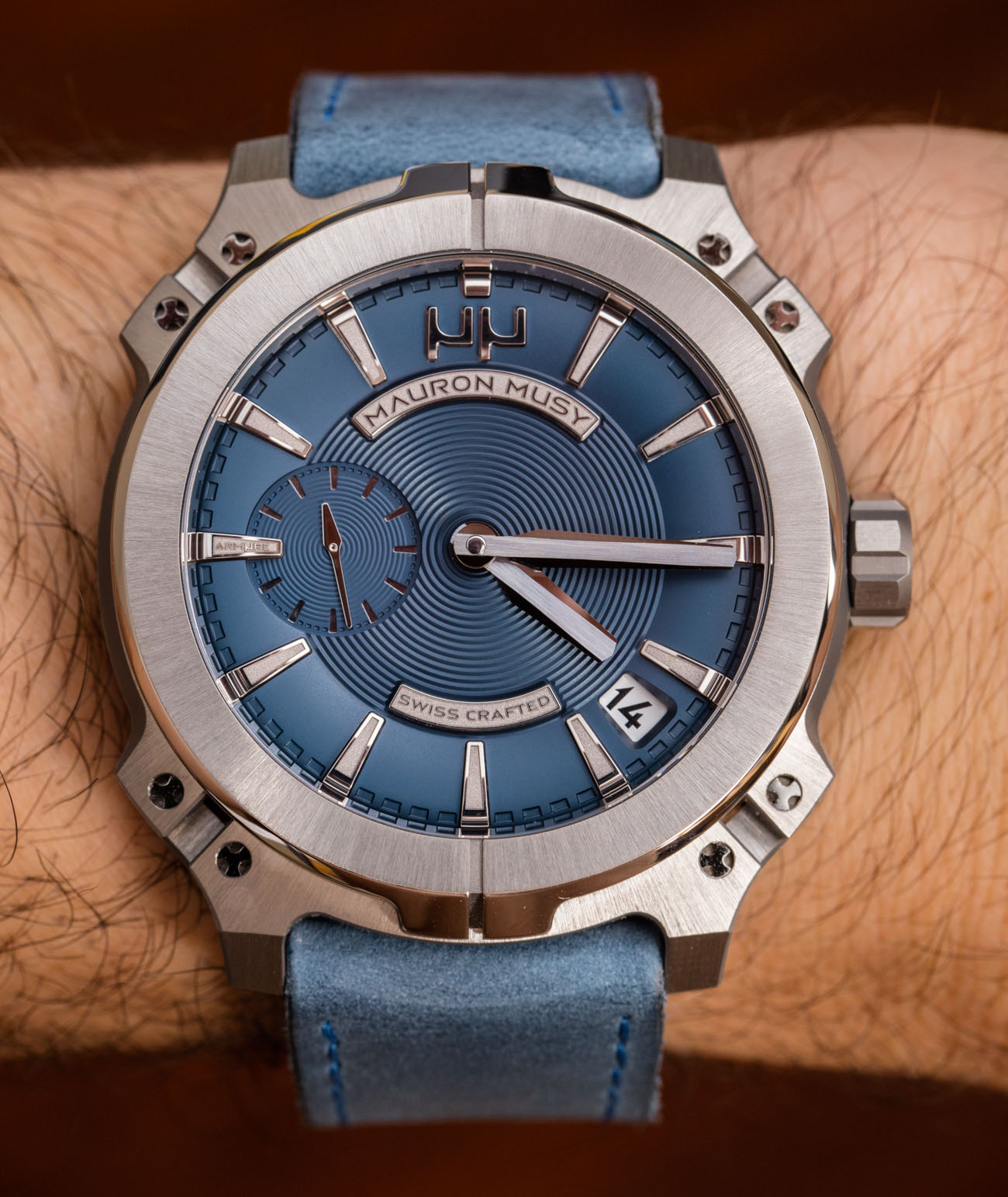
In the Mauron Musy business model and the “Swiss Crafted” label, no value-related considerations are taken into account, simply because the entire range of skills originate within the Swiss watch industry. All elements of the watches movement — case and dial — are entirely developed, produced, and assembled in Switzerland. With “Swiss Crafted,” we are defending far more than a label — indeed, a full-fledged industrial code of ethics.
We stand for values that are very important to us. This label goes beyond the simple sourcing of components since it allows us to obtain a better carbon impact with local suppliers and production, it gives local people work, and allows us to keep the know-how between our mountains.
The label will soon become official with multiple brands joining in. So, we hope that, at that time, watch connoisseurs and the media will take a more serious interest in it.
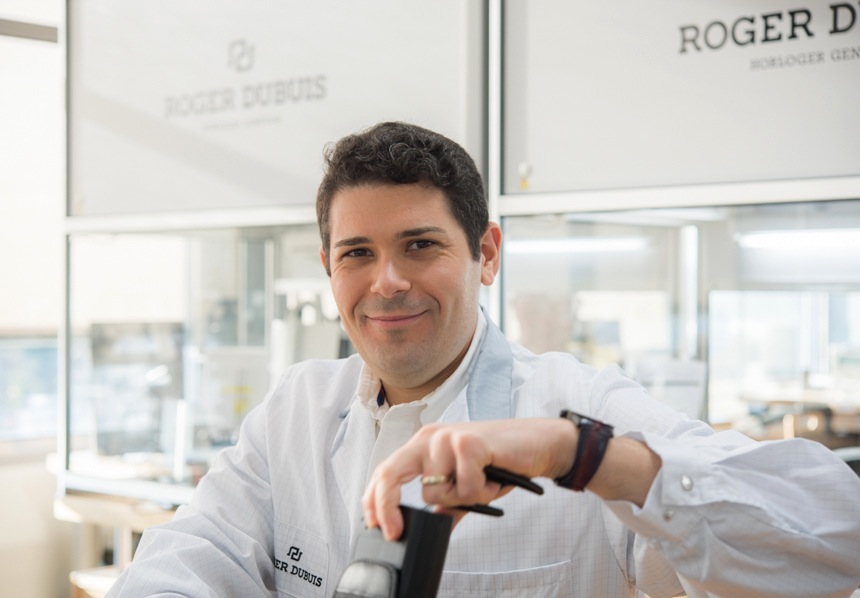
AA: What do you think a consumer is actually seeking in a watch manufactured in Switzerland that isn’t part of the “Swiss Made promise?”
CM: I think many people are not yet familiar with the true legislation of “Swiss Made” and prefer to “hide” behind a beautiful watch belonging simply to a famous brand …. rather than to Swiss know-how and such! If “Swiss Made” is inscribed on the watch, that’s enough for many people!
Buyers of a Mauron Musy watch go further. They are epicureans of watchmaking — they understand it, they love its values and its history, and they find themselves in the Swissness that created our watchmaking.
AA: Before coming up with your own term (Swiss Crafted), you must have searched for other existing labels you could apply, or inquired whether the Swiss government might be interested in making its standards more stringent. Share a few stories about the process leading up to the Swiss Crafted name.
CM: The “Swiss Crafted” label was born from the fact that “Swiss Made” watches are not really “Swiss Made” in reality. I have already said this, but the legislation leaves a lot of flexibility since it takes into account the hourly cost of work. As Switzerland and China have very different costs, it only takes a few Swiss operations to transform a Chinese component into “Swiss Made!” We do not want to participate in this hypocrisy. Although it is the only label currently recognized by the state, it is, for my part, neither thoughtful nor rewarding for our watch industry.

During our initial search for a 100% Swiss label, we quickly noticed that there was nothing very significant and that some brands only used the word “Swiss” on their watches to increase the value and legitimacy of their own “Swiss Made.” It is difficult to know if a watch is, in terms of value, 60% or 98% Swiss made.
During the development of our MU03 model, we had a whole process of reflection on the Swissness of the brand, and we decided to go beyond the standards of “Swiss Made” and to apply a strict reading of Swiss quality. To do this, we decided, from the launch of this series, equipped with the MM01 movement, to produce only 100% Swiss watches. Rigid specifications have been drafted requiring that all parts of Mauron Musy watches to be produced in Switzerland… that 100% of the components ar eto be 100% made in Switzerland. At the same time, Mauron Musy imagined the creation of a label that would allow the recognition of companies that are committed to the 100% Swiss way — the “Swiss Crafted” label was born!
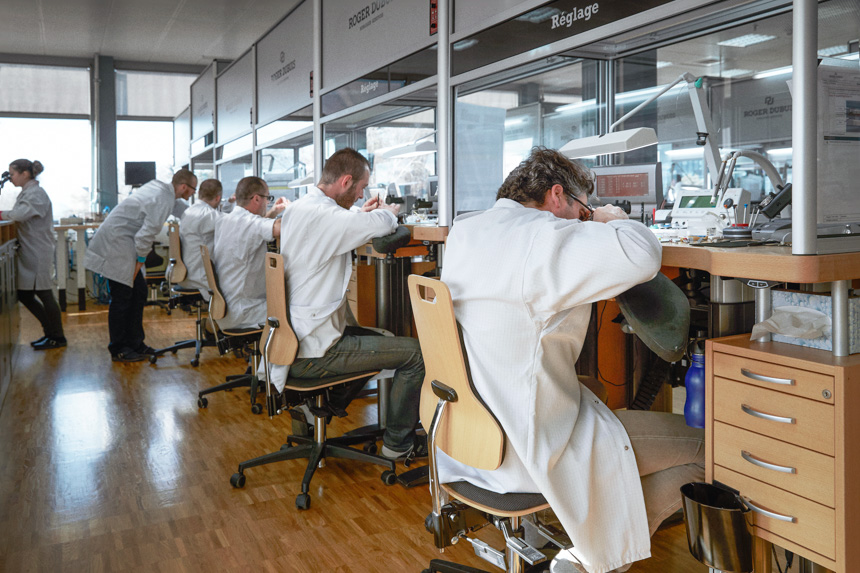
AA: What are the top two or three values or promises of a Swiss Crafted product that you simply won’t find in a Swiss Made product?
CM: The first value is, of course, to make our local fabric work together. We see, in this period of Coronavirus, that a lot of companies find themselves without components and with huge supply difficulties. So, this is a competitive advantage for Mauron Musy because, although we feel personally very affected by the spread of this new virus and we are saddened to hear about the many people affected in their lives and personal situations, commercially, and given that we manufacture our parts in-house and all our suppliers are all located in Switzerland, we are not feeling the impact of the COVID-19 pandemic as much as our competitors.
It should also be remembered that the back and forth movement of components from one continent to another is very destructive for our planet. “Swiss Crafted” is, therefore, part of an environmental approach since its carbon footprint is much lower than the “Swiss Made.”
Although we wish to be personally involved in the development of the label, we do not wish to make it “our” label but rather a new standard for Swiss companies and their customers. Mauron Musy fights for Swiss values and in order to avoid a partisan approach, we have opted for the creation of an independent structure to manage the label. Moreover, an independent entity should be mandated to establish controls to guarantee the seriousness and legitimacy of the label.

AA: Now that you’ve come up with what you feel is a more prestigious or challenging-to-meet alternative to Swiss Made, defend “Swiss Made” as a concept and explain what consumers you feel “Swiss Made” products still serve very well.
CM: We have nothing against “Swiss Made.” On the contrary, many brands play the game and do not necessarily calculate their percentage of Swiss components. Moreover, it remains, of course, the reference label worldwide, but its credibility is put at stake every day. I hope with all my heart that the passage of the COVID-19 Coronavirus will raise the awareness of the players in our industry and that the brands will repatriate part of their work to Switzerland.
Regarding the brands that are still making true “Swiss Made,” I am sure that they still serve watches that highlight the values for which the label was created — quality and Swiss origin. Even though this corresponds to a majority of small brands, it corresponds to a minority of watches!
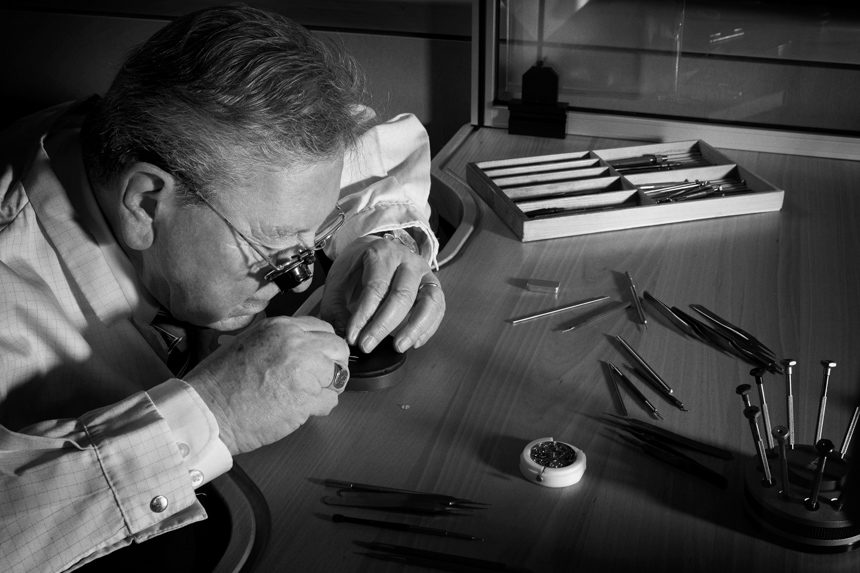
AA: Finally, is Switzerland even set up to have more companies produce “Swiss Crafted” products? Is there enough manufacturing capacity for it? Or is Swiss Crafted currently a more challenging-to-meet standard that isn’t just about deciding to produce products using Swiss companies but also about structuring your business and operations differently. In general, explain what hurdles a brand might logically face if they wanted to start offering “Swiss Crafted” watches.
CM: First of all, the “Swiss Crafted” label will certainly not interest cheap “Swiss Made” watches, since they seek above all to be at the minimum of Swiss manufacture. They are, therefore, very dependent on Asian suppliers. The same applies to “marketing” brands, which must essentially make margin for their communication. I’ll say it again, but “Swiss Crafted” is part of a respectful approach. Whether it is the transparency of the origin of components, the environment, technological vision or quality, our clients find values that they do not find in “Swiss Made” watches.

“Swiss Crafted” is represented by brands that wish to adhere to strict Swiss values and offer a level of consistency to manufacturers that protects their intrinsic value. This gives their timepieces greater long-term value and protects the economic interests of the company. It is oriented in the direction of long-term stability.
